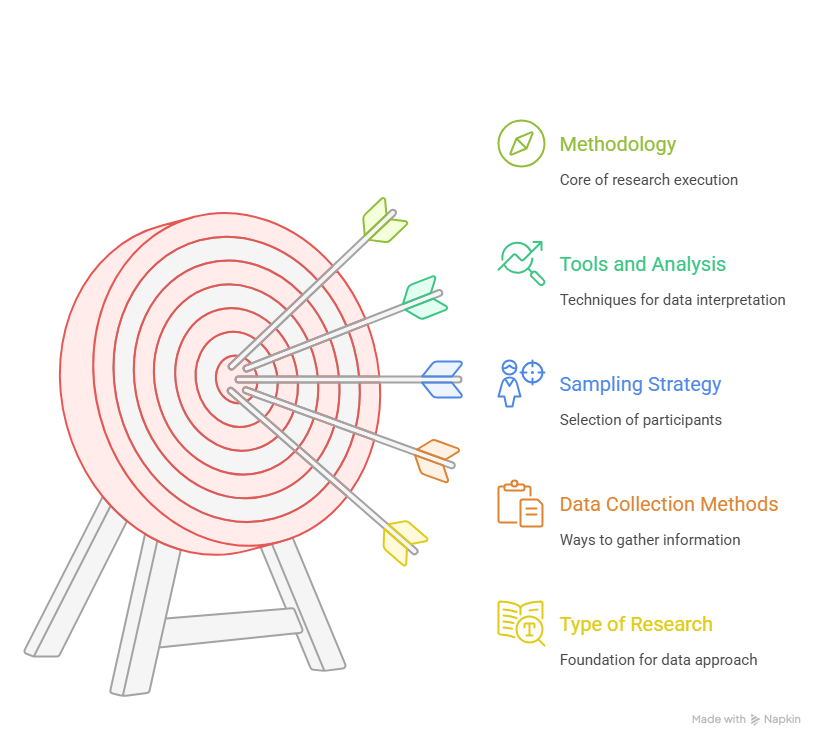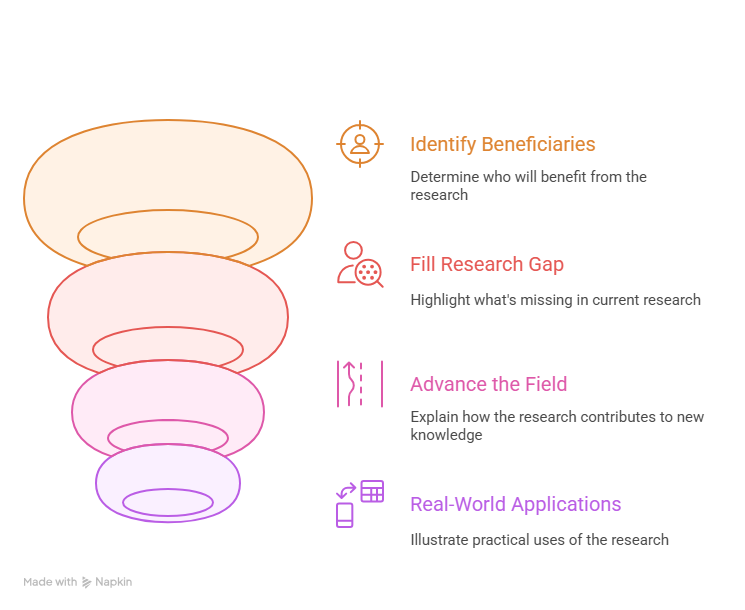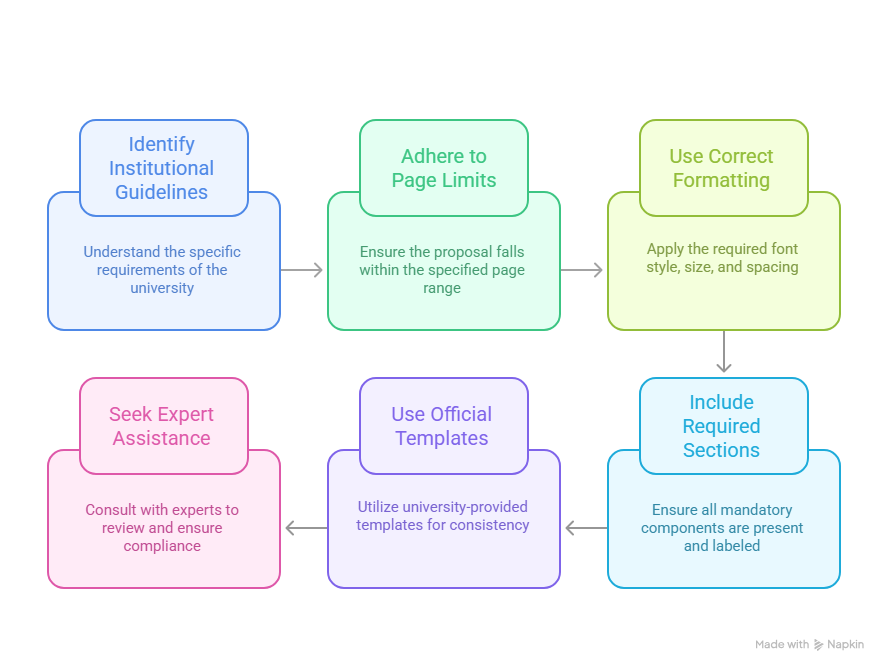Embarking on a PhD journey is both an exciting and challenging experience. One of the first and most crucial steps in this academic pursuit is writing research proposal for PhD. A well-structured proposal not only outlines your research intentions but also convinces your academic committee of the project’s value, feasibility, and originality. In many cases, it’s the deciding factor in whether your application is accepted or rejected.
Universities expect your proposal to demonstrate deep understanding of the subject area, clear research goals, and a solid plan for execution. It’s not just about presenting an idea—it’s about showing that you’ve done your homework, identified a relevant research gap, and have a practical roadmap to address it. This makes writing research proposal for PhD more than a formality; it’s a strategic document that requires careful planning, critical thinking, and academic precision.
At PhDiZone, we specialize in helping scholars craft high-impact research proposals tailored to their domain and institutional guidelines. In this blog, we’ll break down the essential elements, tips, and proven strategies that make a PhD proposal stand out. Whether you’re just starting or refining your draft, this guide will set you on the path to academic success.
Table of Contents
Understand the Purpose of a PhD Research Proposal
Before you begin drafting, it’s essential to understand that writing research proposal for PhD is not just about outlining what you plan to study. It’s a persuasive academic argument that justifies your research idea, demonstrates its originality, and proves that it can be completed within the timeframe and resources available. Your proposal is the blueprint for your entire doctoral journey, and it should reflect both your understanding of the field and your capacity to contribute meaningfully to it.
A compelling writing research proposal for PhD typically includes:
- A focused objective – Clearly define what your research will explore and the reason behind its significance.
- A literature-grounded rationale – How your topic fits within and extends existing research.
- A well-defined methodology – Your plan for collecting and analyzing data.
- Expected results or contributions – The impact your study could have on academia or society.
Think of your research proposal as a miniature version of your full thesis. It should provide enough depth and direction to assure reviewers that your research is both viable and valuable. Starting with the right mindset helps you align your proposal with academic expectations from the outset.
Choose a Specific and feasible Research Topic
One of the most critical steps in writing research proposal for PhD is selecting the right research topic. Many proposals get rejected simply because the topic is too broad, unfocused, or lacks originality. To gain approval, your topic must be both specific and practical, allowing you to conduct meaningful and manageable research within your PhD timeline.
A strong research topic should:
- Address a current gap in your field or solve a real-world problem
- Be narrow enough to allow for deep, focused exploration
- Reflect your academic and career interests to sustain long-term motivation
Example:
Too broad: “Social Media in Education”
Feasible: “The Impact of TikTok on High School Students’ Study Habits in Urban India”
Choosing a well-defined topic also strengthens the other components of your proposal, including your literature review, research questions, and methodology. Before locking in your topic, discuss your ideas with mentors, scan recent journals for gaps, and assess whether reliable data sources are available. Remember, a focused topic increases the chances of your writing research proposal for PhD getting approved on the first attempt.
Conduct a Thorough Literature Review
A well-executed literature review is a cornerstone of writing research proposal for PhD. It demonstrates that you have a solid understanding of the existing body of knowledge in your research area and helps justify why your study is necessary. More than just summarizing past studies, your review should critically evaluate what has been done, identify gaps or inconsistencies, and position your proposed research within the academic conversation.
A strong literature review accomplishes the following:
- Justifies your research gap by highlighting what’s missing or underexplored
- Shows how your work connects with or challenges existing research
- Identifies methodologies used by other scholars, guiding your own approach
Checklist for an Effective Literature Review:
- Use 15–20 peer-reviewed journal articles or academic sources
- Include relevant theoretical frameworks to ground your study
- Highlight debates, inconsistencies, or controversial findings in the field
By incorporating a well-organized literature review, your writing research proposal for PhD will reflect both depth and academic credibility. It signals to reviewers that you’re prepared to build on existing knowledge thoughtfully and contribute something truly valuable to your discipline.
Define Clear Research Questions or Hypotheses
At the heart of writing research proposal for PhD are your research questions or hypotheses. These act as the foundation of your entire project, guiding your methodology, data analysis, and discussion. Vague or overly broad questions make it difficult to focus your study and often result in rejection or major revisions. Instead, your questions should be sharply defined, aligned with your objectives, and feasible within your proposed framework.
A strong research question should be:
- Specific and researchable within the scope of your PhD timeline
- Closely tied to your study’s aim and literature review
- Answerable through your chosen research methods
Example:
Objective: To assess the influence of gamification in online learning
Research Question: How does gamification affect student engagement in undergraduate e-learning platforms?
Avoid yes/no questions or overly complex ones that can’t be answered within a single study. Instead, aim for clarity, precision, and alignment with your methodology.
Outline a Strong Research Methodology
The methodology is one of the most important components in writing research proposal for PhD. It shows how you plan to carry out your research in a systematic, valid, and reliable way. A proposal without a clear, detailed methodology often gets rejected, no matter how innovative the topic is. Below is a point-by-point breakdown of what your methodology should include:
Type of Research
Clearly state whether your research is qualitative, quantitative, or mixed-methods. This sets the tone for how data will be collected and analyzed.
- Example: A qualitative study might explore in-depth experiences through interviews, while a quantitative one may analyze survey data statistically.
- Tip: In writing research proposal for PhD, aligning your research type with your objectives builds academic credibility.
Data Collection Methods
Explain how you’ll gather data. Will you use surveys, interviews, case studies, focus groups, or experimental setups?
- Describe your tools (questionnaires, audio recordings, software, etc.)
- Indicate how data will be recorded and stored securely
- Example: Using semi-structured interviews to explore user behavior in mobile health apps
Sampling Strategy
Define your target population and how you’ll select participants. Will it be random, purposive, stratified, or convenience sampling?
- State the sample size and justify it
- Describe inclusion/exclusion criteria
- This is a crucial part of writing research proposal for PhD because reviewers want to ensure your sample is representative and ethical
Tools and Analysis Techniques
Specify which tools, software, or analytical frameworks you’ll use to interpret data.
- Quantitative: SPSS, R, Excel for statistical tests
- Qualitative: Thematic analysis using NVivo or Atlas.ti
- Mention how results will answer your research questions
Real Example:
At PhDiZone, we recently assisted a scholar in writing research proposal for PhD in healthcare analytics. The student used a mixed-methods approach—collecting large-scale patient data via AI tools and conducting interviews with medical professionals. This combination offered both depth and breadth, leading to rapid proposal approval.
In summary, a strong methodology section in writing research proposal for PhD showcases your ability to plan and execute research rigorously. Detail each part logically and align it with your overall objectives to increase your chances of acceptance.
Highlight the Significance and Impact of Your Study
When writing research proposal for PhD, it’s not enough to present a great idea—you must also explain why it matters. The significance section is your opportunity to show the academic committee the real-world and theoretical value of your research. It explains why it truly matters.
Your explanation should clearly outline:
Who Benefits from Your Findings?
Identify the groups or sectors that will gain value from your research:
- Will it help policymakers create informed regulations?
- Will it guide educators, medical professionals, or industry leaders?
- Does it enhance the academic community’s understanding of a specific issue?
What Gap Does It Fill?
Make it clear what’s missing in the current body of research and how your study addresses it.
- Is there a lack of data on a specific population?
- Are existing theories outdated or underexplored?
- This is a core aspect of writing research proposal for PhD, as it justifies your research’s necessity.
How Does It Advance the Field?
Explain how your study contributes to new theories, methods, or datasets. Consider whether it:
- Opens new lines of inquiry
- Challenges traditional perspectives
- Supports interdisciplinary innovation
Real-World Applications and Implications
Illustrate how your research could be applied outside academia:
- Could it influence government policy or business strategy?
- Will it lead to technological innovations or community development?
- Projects with tangible outcomes tend to be favored in writing research proposal for PhD
Tip: Use future-focused language like “This research will support…” or “The findings may guide…” to strengthen your impact statement.
By articulating the significance of your study in a compelling and structured way, you elevate the overall quality of your writing research proposal for PhD, making it more convincing and application-ready.
Plan a Realistic Timeline and Resources
Creating a well-thought-out timeline and resource plan is a critical part of writing research proposal for PhD. It shows that you’re not just focused on the idea but also on the execution. Here’s how to structure this section step by step:
1. Break the Project into Phases
Divide your PhD project into clear stages. Typically, you’ll start with a literature review, followed by data collection, then analysis, and finally, writing and revision. Each phase should have an estimated duration, such as three months per stage. This helps demonstrate that your research is not only ambitious but also achievable.
2. Define Tools and Software
Mention the tools you’ll use at each stage. For instance, if you’re doing quantitative analysis, you might use SPSS or R. If it’s qualitative, NVivo or ATLAS.ti may be necessary. When writing research proposal for PhD, including specific software names shows that you’re prepared and methodologically sound.
3. Identify Key Resources
List any resources you’ll need access to—university labs, archival databases, external datasets, or specialized equipment. Institutions want to know you’ve considered the practical aspects of your research.
4. Include Budget or Funding (If Required)
If your institution expects it, briefly outline potential costs like software licenses, travel expenses for fieldwork, or participant incentives. Keep it realistic and aligned with your project scope.
By thoughtfully outlining your timeline and resource needs, you strengthen the feasibility of your writing research proposal for PhD and prove to reviewers that you’re ready to manage a complex research project.
Follow the University’s Guidelines Strictly
One of the most avoidable reasons for rejection when writing research proposal for PhD is failure to follow the university’s formatting and structural guidelines. No matter how brilliant your research idea is, overlooking basic requirements can make your proposal appear unprofessional or incomplete.
Here’s how to ensure compliance with institutional expectations:
1. Adhere to Page Limits
Most universities specify a word or page range—typically between 5 to 15 pages. Submitting a proposal that is too short may seem underdeveloped, while one that is too long could frustrate reviewers.
2. Use the Correct Formatting
Follow the university’s rules on font style (usually Times New Roman or Arial), font size (commonly 11 or 12 pt), and line spacing (often 1.5 or double-spaced). Also, pay attention to margin requirements and citation style (APA, MLA, Harvard, etc.).
3. Include All Required Sections
Ensure that all mandatory components—such as title page, abstract, introduction, literature review, methodology, timeline, and references—are included and properly labeled. A strong writing research proposal for PhD always aligns with the exact structure outlined by the institution.
4. Use Official Templates
Tip: Many universities provide downloadable templates or proposal guides on their official websites. Always start with these documents to avoid formatting errors. You can also seek expert assistance from PhDiZone to review your structure and ensure full compliance.
By strictly following institutional guidelines, you enhance the presentation of your writing research proposal for PhD and increase its chances of moving smoothly through the approval process.
Why Choose Us for Writing Research Proposal for PhD
- Expert PhD Writers Across Disciplines
Our team consists of domain-specific PhD scholars and academic experts who understand university expectations and field-specific research needs. - Custom Proposal Development
We don’t use templates. Every proposal is tailored to your research topic, university guidelines, and academic goals, ensuring originality and relevance. - Complete University Compliance
From formatting and structure to reference style and page limits, we strictly follow your university’s instructions for writing research proposal for PhD. - Strong Research Gap Identification
We help identify a clear and valid research gap through extensive literature review and topic analysis—ensuring your proposal is both significant and unique. - Accurate Methodology Design
Our experts suggest the most suitable qualitative, quantitative, or mixed-methods approach to match your objectives and data requirements. - Fast Turnaround & On-Time Delivery
We value your deadlines. Our streamlined process ensures timely delivery without compromising academic quality. - Unlimited Revisions & Expert Consultation
We offer multiple revisions and one-on-one consultations so that your proposal meets the highest academic standards before submission.
Need help writing research proposal for PhD? Contact PhDiZone today and get expert assistance tailored to your research journey!
Frequently Asked Questions
1. How long should a PhD research proposal be?
Most universities recommend proposals between 1,500 to 3,000 words, depending on your field of study. Always consult your institution’s official guidelines to ensure your proposal meets specific requirements.
2. Can I change my research topic after the proposal is accepted?
Minor changes are usually permitted, especially if they improve your research direction. However, major alterations in objectives, methods, or scope typically require formal approval from your academic supervisor or doctoral committee.
3. What if I’m not confident in my writing skills?
You’re not alone. Many scholars seek expert help for writing research proposal for PhD. Services like PhDiZone offer professional assistance—from refining your topic and organizing your structure to editing and aligning with university standards.
4. How important is the research gap in proposal writing?
Identifying a clear research gap is critical. It justifies your study’s relevance and shows you’re contributing something original. Without it, your proposal may appear redundant or lacking purpose.
5. Do I need to include references in my research proposal?
Absolutely. When writing research proposal for PhD, include properly formatted academic references to support your background, literature review, and methodology. This enhances credibility and aligns your work with scholarly expectations.
Conclusion: Ready to Master Writing Research Proposal for PhD?
The journey to earning a PhD begins with a strong, structured, and persuasive research proposal. Every element—from choosing a focused topic to designing a sound methodology—plays a critical role in your success. Understanding the expectations and delivering a proposal that’s both original and feasible is the key to approval.
At PhDiZone, we’re committed to helping you at every step. Whether you’re struggling with defining research questions, reviewing literature, or formatting according to university guidelines—we’ve got you covered.
Get expert guidance from trusted PhD consultants who understand what top universities expect.
Visit PhDiZone.com today and take the first step toward your research excellence!











